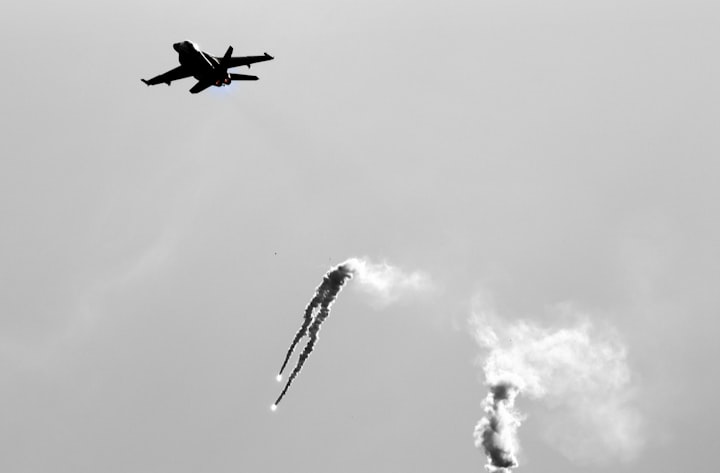
Israel, the world's only Jewish state located east of the Mediterranean Sea and Palestine, the territory of the Arab population that hails from the Israel-controlled land, have long been known for their enduring conflict with the Israeli occupation of the West bank and the Gaza strip. The tension between Israel and Palestine has been deteriorating in years, climaxing with many violent clashes between the two sides. To understand the root of the Israel-Palestine conflict, we have to look back a few thousand years ago.
Early history of Israeli Palestinian conflict
In the 17th centuries BC following the call of God three patriarchs of the Jewish people; Abraham Isaac and Jacob, settled in Canaan. a region approximating present-day Israel the west bank and the Gaza strip parts of Lebanon Syria and Jordan. The region later had the name the land of Israel, the promised land the Palestine region or the holy land. In 1000 BC king Saul established the Israelite monarchy which then was ruled by king david who made jerusalem the capital of his kingdom and his son king solomon who built the first temple in jerusalem. After the death of king Solomon the united monarchy was split into the kingdom of israel in the north with samaria as the capital and the kingdom of judah in the south, with jerusalem as the capital. The land became home to a majority of jews but then it was subject to numerous conquests of various groups leading to the significant decrease of the jewish population on the land. One of these conquests was conducted by the roman empire, who gave the name Palestine to Judah intending to break the jewish connection with the land of israel. During this time christianity which started as a jewish sect, ultimately became a dominant religion toward the end of the roman empire.
In the 7th century, came an Arab conquest, beginning the spread of islam. The dome of the rock was built on the ruin of the second temple, making Jerusalem the holy city to three monotheistic religions; judaism, christianity and islam. After christians in Jerusalem were intensely persecuted by the Seljuk Turks, a central Asian empire with ambition to expand its territory, christians in Europe launched several crusades to bring the holy city back to the hand of the christians. During this time many jews were killed, others were making pilgrimages everywhere mostly in western Europe. from the 16th century to World War 1 the holy land along with much of the middle east was ruled by the ottoman empire, an islamic superpower. The land was unofficially called palestine. At the same time in Europe more and more jews were joining a movement called Zionism, aiming to create a jewish national state in its ancient homeland. Hence in the first decade of the 20th century, tens of thousands of jews moved from Europe back to the region.
Israel and Palestine under British rule
World War 1 exploded and ended with the collapse of the Ottoman empire. its land in the middle east was carved by the British and french empires. the British then gave more independence for iraq and jordan and the region remaining under the control of Britain was what it called the ‘British mandate for palestine’, where Britain promised to establish a Jewish national homeland under its Balfour declaration which went into effect in 1923. Tensions between the Jews and the Arabs who both claimed the land grew which even led to acts of violence. By the 1930s following the increasing Jewish population in Palestine, due to the fear of persecution during the Nazi reign in Germany, the British limited Jewish immigration. in response the Jewish militias formed to both fight the Arabs and resist British rule.
Then came the holocaust throughout Nazi Germany which claimed almost 6 million Jewish lives. After the war more and more Jews then fled from Europe to Palestine to seek a homeland, escalating the tension with the Arabs. overwhelmed by the situation, Britain began to withdraw from the region.
The birth of the Israel state
After World War II, the U.N proposed a plan to partition Palestine into two independent states; a Jewish state and an Arab state, with the city of Jerusalem becoming an international zone with a special status. However, the plan according to which the Jewish, accounting for only one-third of the population was granted more territory 56.5 of the land was rejected by the Arabs. They began to form volunteer armies throughout palestine. Less than one year after that as Britain completed its withdrawal from Palestine, Israel declared itself an independent state marking a new bloodier chapter in the struggle between the jews and the Palestinians Arabs.
The 1948 Arab-Israeli war
Right after the announcement of an independent Israel a war between the Arabs and the Jews broke out which was known as the 1948 Arab Israeli war. The war involved five recently independent Arab nations; Egypt, Jordan, Iraq, Syria and Lebanon, the Arab league who invaded the region in an attempt to establish a unified Arab Palestine. However a ceasefire agreement was reached a year later in which more than two-thirds of historic Palestine including west Jerusalem belonged to israel while Jordan occupied east jerusalem and the area known as the west bank and egypt occupied the gaza strip. As a result more than 750 000 Palestinians were expelled from the land where they lived for centuries on the day that they call al-nakba or the catastrophe. With the deteriorated dispute between the jews and the Arabs there came more wars in fighting in the following decades.
The 60-day war
It was in 1967 when the 60-day war broke out, after a volatile period of diplomatic friction and skirmishes between Israel and its neighboring Arab states; Jordan, Syria and Egypt. This brief war ended with the victory of Israel giving Israel control over the Golan heights from Syria, the west bank and east Jerusalem from Jordan and Gaza and the Sinai Peninsula from Egypt. Sinai was later returned to Egypt under the Egypt Israel peace treaty. After the war most Palestinian refugees and their descendants were not allowed to return to their homes but had to live in Gaza, the west bank in neighboring Jordan, Syria and Lebanon.
The first intifada and the Oslo accords
The rising number of Israelis settling in the Palestinian territories in the west bank and gaza gave rise to the plo. the Palestinian liberation organization first founded in Cairo, Egypt in 1964 to create a liberated Palestine in Israel. The plo launched attacks on Israel from its base in Jordan; it was then forced to move from Jordan to Lebanon, starting to carry out acts of terrorism against israel. fighting went on for years including the israeli invasion of Lebanon to kick the plo out of beirut. The PLO eventually agreed to divide the land between Palestine and israel but there were still more and more Jewish settlers moved into the israel-occupied palestinian territories. In 1987 a violent Palestinian uprising was ignited starting from the jabilaya refugee camp after an Israeli defense forces truck collided with two Palestinian civilian vans, killing four of them this was known as the first intifada. This bloody conflict resulting in hundreds of deaths triggered a peace process with the signing of the Oslo accords by Israel and the plo. the oslo one accord signed in Washington dc and the oslo ii accord in taba egypt. According to the Oslo accords the west bank was divided into three areas area A was exclusively controlled by the Palestinians area B was controlled by both the Palestinians and Israel area C was fully controlled by Israel.
The second intifada
Though further peace talks continued in 2000, the Israelis and Palestinians could not reach agreements on issues like the status of Jerusalem rights of refugees and the increased Jewish settlement in Palestinian lands. Ariel Sharon, a Jewish Israeli who would later become Israel's prime minister visited the temple mount home to the al-Aqsa mosque in Jerusalem. The action was deemed offensive by many Palestinians and the second intifada broke out. The violence ended with Israel's withdrawal from Gaza, but continued to settle in the west bank.
Israel conflict with Hamas
Hamas is a Sunni Islamist militant group aiming to destroy the state of Israel and create an Islamic state. After the armed conflict between Hamas and fatah who managed the plo hamas split from the palestinian authority and gained power in the gaza. Israel put Gaza under a suffocating blockade, leading to several bloody wars between the two groups in the Gaza strip including operation cast lead, operation pillar of defense and operation protective edge in. In 2014 Hamas and Fatah reached an agreement to form a national unity government. In 2018 the u.s embassy was relocated from tel Aviv to Jerusalem, which was deemed by the Palestinians as a signal of American support for Jerusalem as Israel's capital. 2021 the conflict between Israel and Palestine was reassumed by a series of hostile events in east Jerusalem leading to several acts of violence until a ceasefire deal brokered by Egypt Qatar and the united nations came into effect on may 21st. peaceful though it may seem now the complex and long-lasting territorial dispute between two states is a ticking time bomb that can explode anytime.
About the Creator
Samwriter
With a foundation built on the latest research and a passion for clarity, I'm here to make complex concepts accessible and intriguing. Join me on this intellectual journey, and together, let's uncover the wonders that shape our world.





Comments (1)
Only God can help.🙏